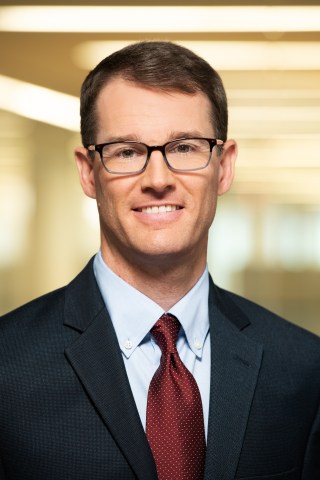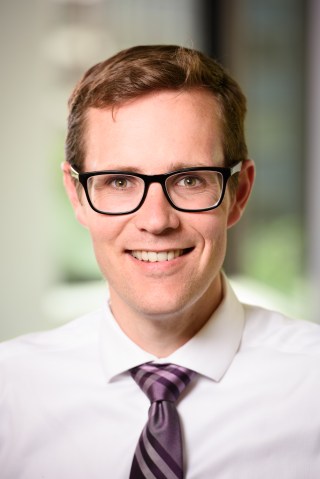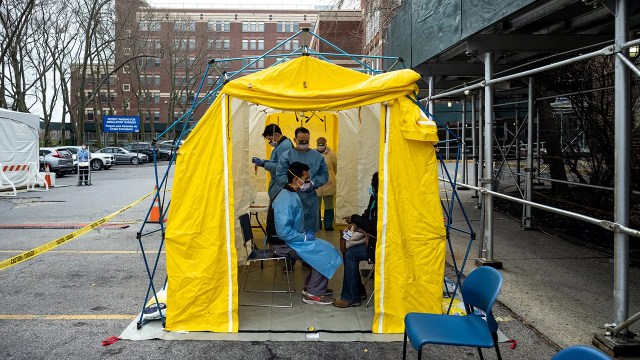
Doctors, nurses and other hospital staff around the country have raised concerns about a shortage of medical supplies during the COVID-19 pandemic. But the U.S. public is generally confident that hospitals and medical centers will be able to care for seriously ill people during the outbreak, according to a new Pew Research Center survey.
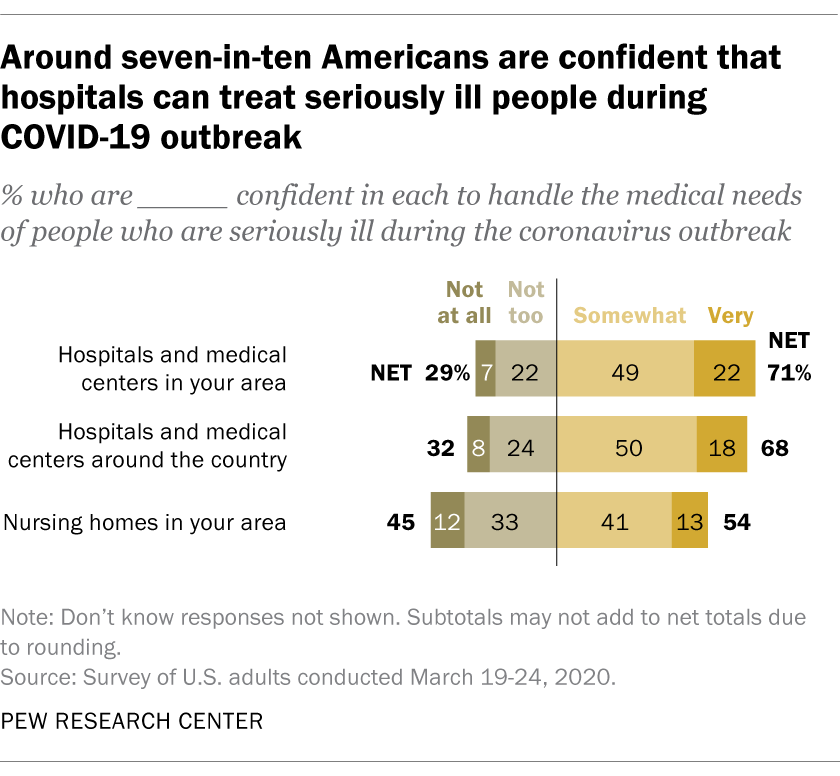
About seven-in-ten U.S. adults (71%) say they are very or somewhat confident that hospitals and medical centers in their area can handle the needs of seriously ill people during the outbreak. Around two-thirds (68%) say this about hospitals and medical centers around the country, according to the survey, conducted March 19 t0 24.
By comparison, a smaller share of Americans (54%) say they are very or somewhat confident that nursing homes in their area can handle the needs of seriously ill people during the outbreak. Nursing homes in more than half the states have reported coronavirus cases, according to federal data. (You can explore all survey data in this analysis and the accompanying report by using our interactive data tool.)
To assess public confidence in key health care facilities as the coronavirus spreads, we surveyed 11,537 U.S. adults from March 19 to 24, 2020. Everyone who took part is a member of Pew Research Center’s American Trends Panel (ATP), an online survey panel recruited through national, random sampling of residential addresses. This way nearly all U.S. adults have a chance of selection. The survey is weighted to be representative of the U.S. adult population by gender, race, ethnicity, partisan affiliation, education and other categories. Read more about the ATP’s methodology.
Here are the questions used in this analysis, along with responses, and its methodology.
See also: Amid coronavirus threat, Americans generally have a high level of trust in medical doctors
While broad majorities of the public express at least some confidence in hospitals and medical centers to be able to treat seriously ill people, only around one-in-five say they are very confident (22% say this about hospitals and medical centers in their area and 18% say this about these facilities around the country). Far more respondents say they are somewhat confident.
The same is true for local nursing homes: Just 13% of U.S. adults say they are very confident, while 41% say they are somewhat confident.
Around eight-in-ten Republicans and GOP-leaning independents (78%) say they are at least somewhat confident that their local hospitals and medical centers will be able to meet the needs of seriously ill people, compared with 65% of Democrats and Democratic leaners. The partisan gap is wider when it comes to hospitals and medical centers around the country: 77% of Republicans express at least some confidence, compared with 59% of Democrats.
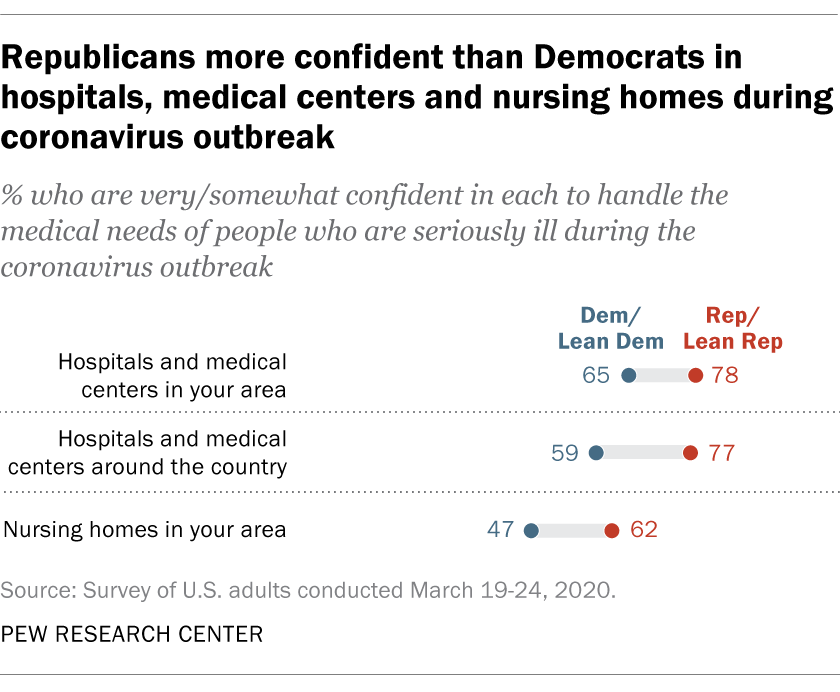
Republicans are also more likely than Democrats to express confidence in nursing homes in their area. Around six-in-ten Republicans (62%) are very or somewhat confident, compared with roughly half of Democrats (47%).
Liberal Democrats tend to have less confidence than other partisan groups that hospitals, medical centers and nursing homes will be able to handle the needs of seriously ill people during the COVID-19 outbreak. For example, only about half of liberal Democrats (49%) are at least somewhat confident that hospitals and medical centers around the country will be able to do this, compared with 67% of conservative and moderate Democrats and large majorities of moderate and liberal Republicans (74%) and conservative Republicans (79%).
Few major differences in views by age, geography
The Center’s survey finds only modest demographic differences, including by age, when it comes to Americans’ confidence in key medical facilities. While the coronavirus has hit older people especially hard, Americans ages 65 and older are slightly more likely than their younger counterparts to be very or somewhat confident in their local hospitals and medical centers to weather the outbreak (76% say this, compared with around seven-in-ten in younger age groups).
Confidence is also slightly higher among Americans with less education. For example, around three-quarters of adults with a high school diploma or less education (74%) say they are at least somewhat confident that their local hospitals and medical centers will be able to meet the needs of seriously ill people, compared with 67% of those with a college degree.
The coronavirus has affected some states much more than others, but the survey finds few differences in attitudes depending on whether a state has been hit hard or not. For example, 61% of Democrats in states with a high number of COVID-19 cases are very or somewhat confident in their local hospitals and medical centers to handle the needs of the seriously ill during the outbreak – not significantly different from the 65% of Democrats who live in states with a low number of cases and say this. (You can read more here about how the Center classified states as having a high, medium and low number of COVID-19 cases.)
Note: Here are the questions used in this analysis, along with responses, and its methodology.
